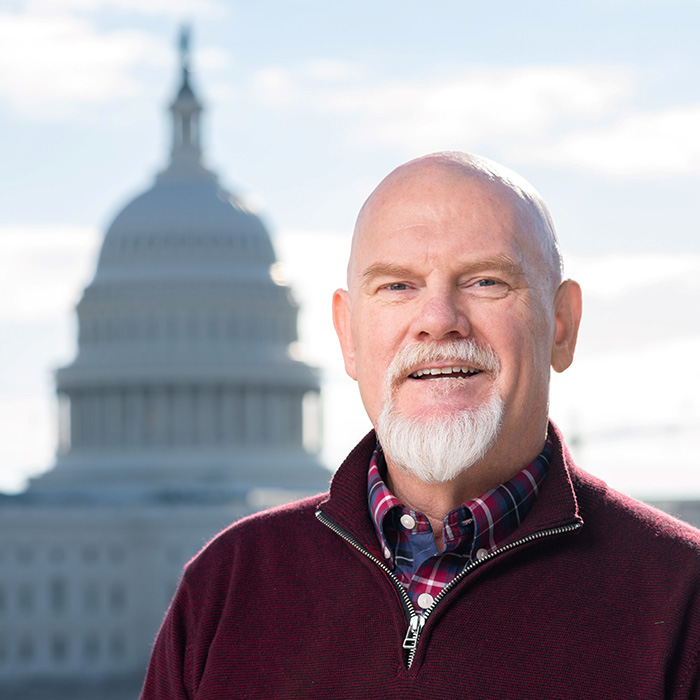
When Joe Di Scipio L’95 was in law school, he wasn’t especially interested in mergers and acquisitions (M&A). He had his eyes set on politics, perhaps the U.S. Attorney’s office, and thrived on the trial team. Today, Di Scipio is heavily engaged in business negotiations and regulatory compliance in a field that involves a whole lot of politics.
As Senior Vice President for FCC Legal & Business Affairs for Fox Corporation, Di Scipio is involved in the buying and selling of television stations, brokering distribution deals on streaming and digital platforms, and negotiating licensing deals for the retransmission of Fox TV programming. “This isn’t the M&A we studied in law school. Selling broadcast is not like selling a building or real estate,” says Di Scipio.
Having worked at the Federal Communications Commission (FCC) both before and after law school, Di Scipio knows how regulations impact a rapidly evolving field. “How we consume media is changing by the minute,” he says. “I actually had predicted the demise of the field I work in several times, and it just hasn’t happened. In 2005, I thought over-the-air broadcast television would go away, particularly the network affiliation distribution model. I figured cable and satellite would replace that model, but that was not to be. Now, people can download or stream anything they want.”
He says the skills he acquired in prepping for trials are most relevant today as he works through the morass of regulations governing media and negotiating with the FCC on policy changes. “At the federal level, a lot of times the decisions being made are more political than they are legal,” says Di Scipio. “You have to understand the politics involved to get to the desired legal decision.”
For example, when Fox stations started airing college football games, they wanted to offer extended pre-game programming. But the FCC required broadcast stations to carry a certain amount of children’s television, which typically aired at the same time. “Fortunately, we were working with a Republican administration that had a deregulatory bent, but getting them to change the rule and allow greater flexibility in how children’s programming was provided is still a huge deal.”
Di Scipio credits Professor Emeritus Travis Lewin and Judge Elijah “Chip” Huling who worked with the trial team for instilling in him the skills to succeed. “It is the ability to think strategically on your feet when you’re negotiating, to get the other party to move toward your ultimate goal,” he says.
In many broadcast distribution deals, the two sides are partners in desiring to disseminate programming, “but we are diametrically opposed because one side wants to get paid a lot of money and the other doesn’t want to pay anything,” says Di Scipio. “If you can’t figure out how to get the deal done, you’ll go dark. Nobody wants that.” He prides himself on having developed a reputation for being tough, but fair.
Di Scipio says he “trades on trust” in this fast-paced field. Trust that comes from years of building relationships, and involvement with the National Association of Broadcasters, Federal Communications Bar Association, FCBA Foundation, Syracuse University Alumni Association, and Syracuse University Law Alumni Association.
“My advice to students or new lawyers is to invest time in developing relationships outside of their work. It gives you legitimacy. It earns you trust.”
